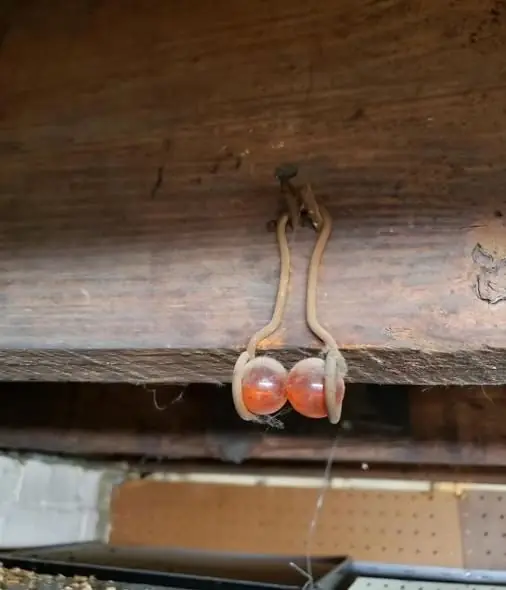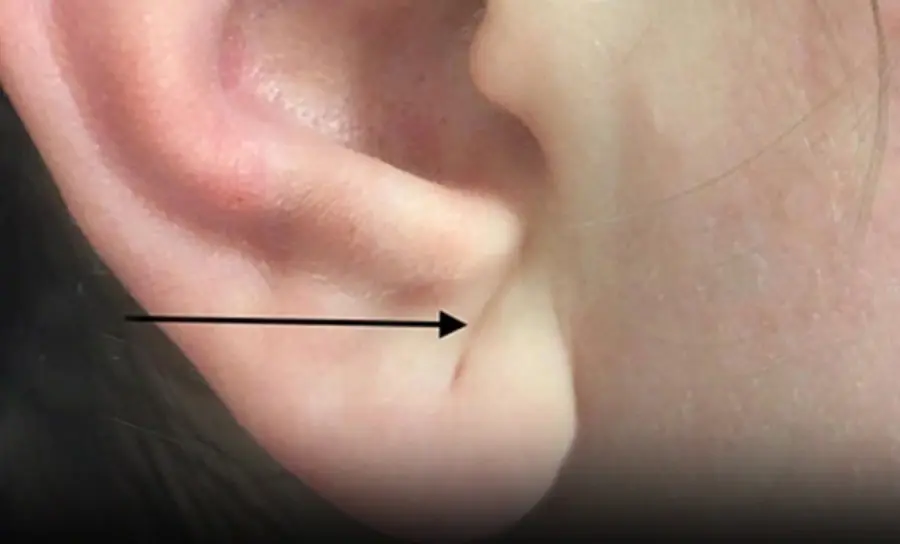
My husband is m.a.d at me because I kicked his mom out after came over to do me a favor. Am I wrong?

My husband asked his mother to come over today and watch our 3-month-old daughter so I could nap. Lately, the baby hasn’t been sleeping at all, and I’m just exhausted. His mother agreed to come over for a few hours and even offered to make dinner, which I appreciated so much.
I got the baby down for a nap and then went to take a nap myself. Well, I woke up to my daughter SCREAMING. I immediately rushed out of bed.
When I reached the living room, I saw my mother-in-law sitting on the couch with her phone in one hand and the baby monitor in the other. The screen showed that she had muted it—our daughter had been crying for at least ten minutes while I slept soundly upstairs, oblivious. My heart sank as guilt washed over me, but frustration quickly followed when I realized what had happened.
“What are you doing?” I asked sharply, scooping up my wailing daughter from her bassinet. She was red-faced and trembling, clearly worked up after being ignored for who knows how long.
“Oh, don’t worry,” my mother-in-law said breezily, not looking up from her phone. “She’s fine. Babies cry all the time; they need to learn patience.”
Patience? I stared at her, incredulous. This wasn’t about teaching patience—it was about neglect. Our little girl needed comfort, not abandonment. Before I could stop myself, words came tumbling out: “You can’t just ignore a baby like that! What if something was wrong?”
Her expression hardened instantly. “Well, excuse me for trying to help. You’re always complaining about being tired, so I thought this would give you some rest. But apparently, nothing I do is ever good enough.”
The tension between us escalated until finally, without thinking things through, I blurted out, “Maybe it would be better if you left.” As soon as those words left my mouth, regret hit me hard. But by then, it was too late. My mother-in-law stood up stiffly, grabbed her purse, and walked out without another word.
When my husband, Liam, came home later that evening, he found me pacing the kitchen, still replaying the scene in my head. He listened quietly as I explained everything, his face unreadable. When I finished, he sighed deeply and said, “Why did you kick her out? She was only trying to help.”
That stung more than I expected. Wasn’t I allowed to set boundaries? To protect my child? But instead of arguing further, I nodded silently and retreated to our bedroom, feeling defeated.
Over the next few days, an uncomfortable silence settled between Liam and me. He didn’t outright say he was mad, but his clipped responses and distant demeanor spoke volumes. Meanwhile, every time I looked at our daughter, now happily cooing in her swing, I wondered if I’d overreacted. Had I been unfair to his mom? Or worse—had I damaged my relationship with Liam?
One afternoon, as I scrolled absentmindedly through social media, I stumbled across a post from a parenting group I belonged to. Someone had shared their experience dealing with family members who misunderstood newborn care. Reading their story gave me clarity—and courage. Maybe I wasn’t entirely wrong.
Determined to fix things, I decided to call my mother-in-law. It took several deep breaths before I dialed her number, bracing myself for whatever might happen next.
“Hello?” Her voice sounded guarded when she answered.
“Hi… it’s me,” I said hesitantly. “Look, I wanted to apologize for what happened the other day. I shouldn’t have told you to leave like that. It wasn’t fair.”
There was a pause on the other end. Then, softly, she replied, “Thank you for calling. And I’m sorry too. I didn’t mean to upset you or dismiss your feelings. I guess I forgot how overwhelming it can be with a new baby.”
We talked for nearly an hour, sharing memories of our own childhoods and discussing different approaches to parenting. By the end of the conversation, we both admitted we’d been too quick to judge each other. We agreed to start fresh, setting clearer expectations moving forward.
Feeling lighter, I hung up and immediately texted Liam: Can we talk tonight?
Later that evening, we sat together on the couch, our daughter asleep in her bouncer between us. I recounted my conversation with his mom, emphasizing how much I valued her willingness to help—but also explaining why I felt so strongly about responding promptly to our baby’s cries.
To my relief, Liam nodded thoughtfully. “I get it,” he said. “I should’ve listened to you more earlier. I was just caught off guard because Mom seemed hurt. But you’re right—we’re a team, and we need to figure this out together.”
Relief flooded through me. For the first time in days, it felt like we were truly connecting again.
A week later, my mother-in-law returned for another visit. This time, however, things went differently. She arrived armed with questions rather than assumptions, asking how she could best support us during her stay. Together, we created a simple plan: she’d handle household chores while keeping an ear out for the baby monitor, stepping in only if absolutely necessary. If anything seemed unusual, she promised to alert me right away.
As the hours passed, I noticed something remarkable happening. Not only did I feel more relaxed knowing someone trustworthy was nearby, but I also began to see glimpses of the nurturing side of my mother-in-law I’d never fully appreciated before. Watching her fold tiny onesies with care or hum softly as she tidied the nursery reminded me that beneath her sometimes-blunt exterior lay genuine love—for her son, her granddaughter, and yes, even for me.
By the end of the day, we were laughing together over burnt cookies and mismatched socks. It wasn’t perfect, but it was progress. And sometimes, progress is all you really need.
Looking back on that chaotic week, I realize now that none of us handled things perfectly—not me, not my mother-in-law, and certainly not Liam. But isn’t that life? We stumble, we argue, we second-guess ourselves. Yet within those messy moments lies an opportunity—to grow, to understand, and ultimately, to connect.
If there’s one lesson I’ve taken away from this experience, it’s this: Communication matters. Setting boundaries doesn’t make you ungrateful, and admitting mistakes doesn’t make you weak. In fact, it’s quite the opposite. Being honest about your needs—and listening to others’ perspectives—can transform even the most strained relationships into something stronger.
So here’s my challenge to you: The next time you find yourself caught in a similar situation, take a step back. Breathe. Remember that everyone involved likely has good intentions, even if their methods differ from yours. And most importantly, don’t be afraid to speak up—or reach out. Because at the end of the day, connection is worth fighting for.
News in the same category


People Who Eat Sweet Potatoes for Breakfast Daily Notice These Changes

Study reveals what really happens to your body if you go in sauna directly after working out

Why are the toilets on the train connected directly to the tracks?

A Flower Once Thought Useless Turns Out to Be a Fragrant, Delicious Dish—Now Going Viral

These are the consequences of wearing used…

If you often notice ringing in your ears, this might be a sign that you will suffer from...

Many people don’t know what its purpose is used for

Why should you avoid showering, washing dishes, and doing laundry during a thunderstorm?

Calling all sweet potato fans!

Ever Wondered Why Hotels Put a Cloth Across the Bed? Here’s the Answer

Your Air Conditioner Has a Built-In Way to Indicate Low Refrigerant — Many People Never Notice It

Your Phone Has a Small Setting That Makes Charging Feel Much Faster — Without Harming the Device

Trying to Save Money, Many People Accidentally Bring Serious Danger Into Their Homes

Eating Ginger Without Removing the Peel: Is It Really Harmful or Just a Common Misunderstanding?

Unlock the mystical power of an antique relic

Why are people with M-shaped hands considered special?

How long can cooking oil be stored after opening? How dangerous is it to consume expired oil?

Many people don't realize just how nutritious this vegetable is

Pouring hot water down the kitchen sink may seem helpful, but it actually poses two major risks many people don’t know about
News Post

90% of women don’t know this trick: Add this one thing to the pan and you can fry “everything” without worrying about oil splattering!

Top Hospitals Issue Stark Warning: This Common Meat May Be “Feeding” Can.cer — Just 50 Grams a Day Raises De.ath Risk by 18%

Black Beans and Black Sesame: The Ancient Pair That “Cleans by Day, Restores by Night” — Yet Most People Use It Wrong

When Buying Bananas, Just Say These 3 Words — Sellers Will Think You’re an Expert and Won’t Dare to Cheat You

The Real Causes of Constant Phlegm and Mucus in Throat — And How to Get Rid of It

3 Signs Your Parent May Be Nearing the End of Life — How to Prepare for What’s Ahead

Why you keep waking up with dry mouth—and what it may be telling you

So this is what it does, here is the answer

If You Keep Waking Up at 3AM, The Universe Might Be Trying to Tell You Something

These sudden purple patches on my arms won’t stop appearing, and my doctor is booked until January. What’s happening?

The Hidden Meaning Behind Thumb Rings for Women vs. Men

The Best Foods to Cleanse and Prevent Clogged Arteries

The Ultimate Guide to Cloves: Benefits, Uses, and How They Work

Top 10 Foods to Control Diabetes

90% of Cerebral Infarction Patients Did These 3 Things in the 3 Days Before a Stroke — Chances Are You’re Doing the Second One Right Now

PAN-SEARED WHITE FISH WITH GARLIC CHILI BUTTER

🩺 If Your Kidneys Are in Danger, Your Body Will Warn You With These 8 Signs

You might be eating these every day — and not know the dang:ers

Watch out – this sign could be an early warning!
